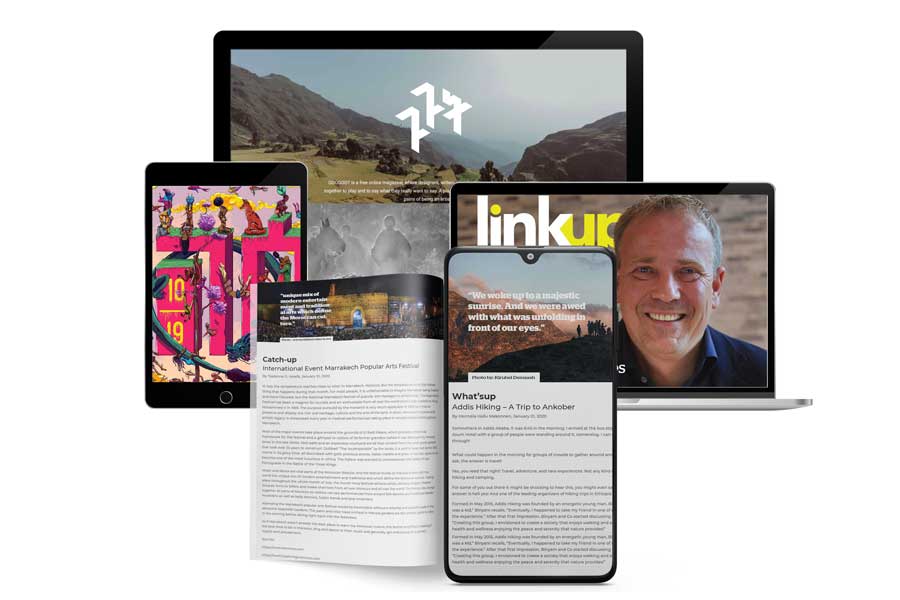
Mar 6 , 2021
By Christian Tesfaye
There is much talk about Ethiopia’s future in the digital arena. Like most initiatives taken in this country, the fear is that it is an enterprise that started with enthusiasm but will end anti-climatically without much to show for it.
But there may be inertia that plays to the advantage of the emerging tech scene, and this is the youth’s absolute infatuation with it. It is leading to innovations and entrepreneurial ideas that, although yet to pay off in terms of national productivity, exhibits potential.
Take sites such as TIKVAH, for instance, a news site that has become ubiquitous on Telegram. With well over a million followers, it reaches people from across the country with current affairs news. It does highlight reports that have been published or broadcast elsewhere, but it also has a network of ears on the ground that it calls the “TIKVAHfamily.” It aggregates and triangulates reports from this network of people – wherever there is a reliable internet service – and publishes surprisingly fresh stores from across the country.
Its reliance on what amounts to grassroots journalism, ability to triangulate reports to meet the demands of accuracy, and its ease of accessibility signals the future of news media. Such innovativeness would have barely been imaginable just a few years back.
It is not just TIKVAH. Take ride-sharing apps. In Addis Abeba, especially in the centre of town, it barely takes a minute to book a cab. The number of ride-sharing companies has multiplied over the past couple of years, bringing a diversity of products and services and empowered consumers. The market has evolved so fast, it threatens to wipe out the livelihoods of owners of the traditional blue taxi cabs.
These are just some of the few success stories. There are many at the grassroots level attempting to innovate and break ground in the emerging digital services market. The opportunities are plenty, especially if there is continuity of policy.
The Council of Ministers last year endorsed a 2025 Digital Transformation Strategy. Usually, such aims are not followed through. There is no meaningful political commitment behind it, or implementation is carried out poorly, with little foresight and imagination. Here, though, things could be different.
A telecommunications services regulation was passed through two years ago to streamline a more open telecoms industry. A new authority – the Ethiopian Communications Authority – has been established as a regulatory body. These should be commendable efforts to show that policymakers do intend to walk their talk.
Still, a major reform that can help the digital services economy grow is the liberalisation of the telecoms industry. There should not be much attention attached to Ethio telecom’s privatisation. No doubt, it can fetch foreign currency, improve the country’s standing in foreign currency reserve. But the benefits to the industry will only aggregate once there is competition, through liberalisation.
Ethiopia is in the process of selling licenses for two telecom providers. It will make the country one of the last countries in Africa to relinquish the stranglehold of state monopoly over telecom services. If banking, brewery, and ride-sharing industries have had any lessons, competition means more affordable and diverse products and services.
But this potential could be undercut if there is a lack of policy consistency. The government has already baulked at the scale of liberalisation, especially in barring independent cell tower companies from investing in Ethiopia. This calls into question the government's long-term plans and how much of its strategies and action plans agreed upon on paper the authorities are willing to see through on the ground.
It is not always that a new industry that revolutionalises the way we live, work, consume and spend comes to the fore. There is already a major lag by the standards of even neighbouring countries such as Kenya. There should be a commitment not to fall behind any longer.
PUBLISHED ON
Mar 06,2021 [ VOL
21 , NO
1088]


Radar | May 25,2019

Radar | Mar 26,2022

Radar | Aug 18,2024

Commentaries | Nov 11,2023

Featured | Feb 01,2020

Radar | Dec 17,2022

Agenda |

Covid-19 | May 31,2020

Fortune News | May 23,2025

View From Arada | Jan 11,2020

My Opinion | 132151 Views | Aug 14,2021

My Opinion | 128561 Views | Aug 21,2021

My Opinion | 126482 Views | Sep 10,2021

My Opinion | 124091 Views | Aug 07,2021





Dec 22 , 2024 . By TIZITA SHEWAFERAW
Charged with transforming colossal state-owned enterprises into modern and competitiv...

Aug 18 , 2024 . By AKSAH ITALO
Although predictable Yonas Zerihun's job in the ride-hailing service is not immune to...

Jul 28 , 2024 . By TIZITA SHEWAFERAW
Unhabitual, perhaps too many, Samuel Gebreyohannes, 38, used to occasionally enjoy a couple of beers at breakfast. However, he recently swit...

Jul 13 , 2024 . By AKSAH ITALO
Investors who rely on tractors, trucks, and field vehicles for commuting, transporting commodities, and f...

Jul 12 , 2025
Political leaders and their policy advisors often promise great leaps forward, yet th...

Jul 5 , 2025
Six years ago, Ethiopia was the darling of international liberal commentators. A year...

Jun 28 , 2025
Meseret Damtie, the assertive auditor general, has never been shy about naming names...

Jun 21 , 2025
A well-worn adage says, “Budget is not destiny, but it is direction.” Examining t...

Jul 13 , 2025 . By YITBAREK GETACHEW
The Addis Abeba City Revenue Bureau has introduced a new directive set to reshape how...

Jul 13 , 2025 . By BEZAWIT HULUAGER
Addis Abeba has approved a record 350 billion Br budget for the 2025/26 fiscal year,...

Jul 13 , 2025 . By RUTH BERHANU
The Addis Abeba Revenue Bureau has scrapped a value-added tax (VAT) on unprocessed ve...

Jul 13 , 2025 . By NAHOM AYELE
Federal lawmakers have finally brought closure to a protracted and contentious tax de...